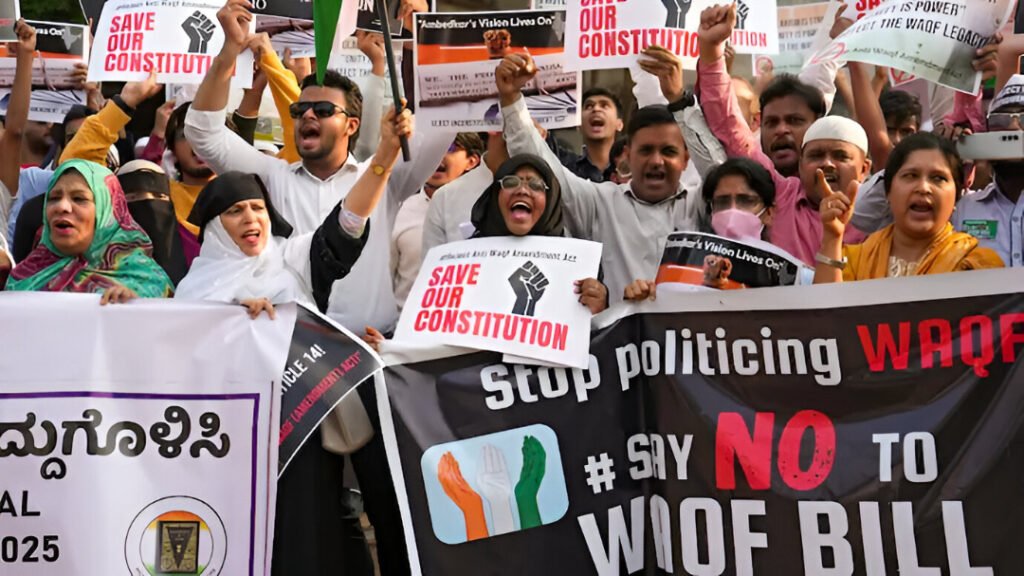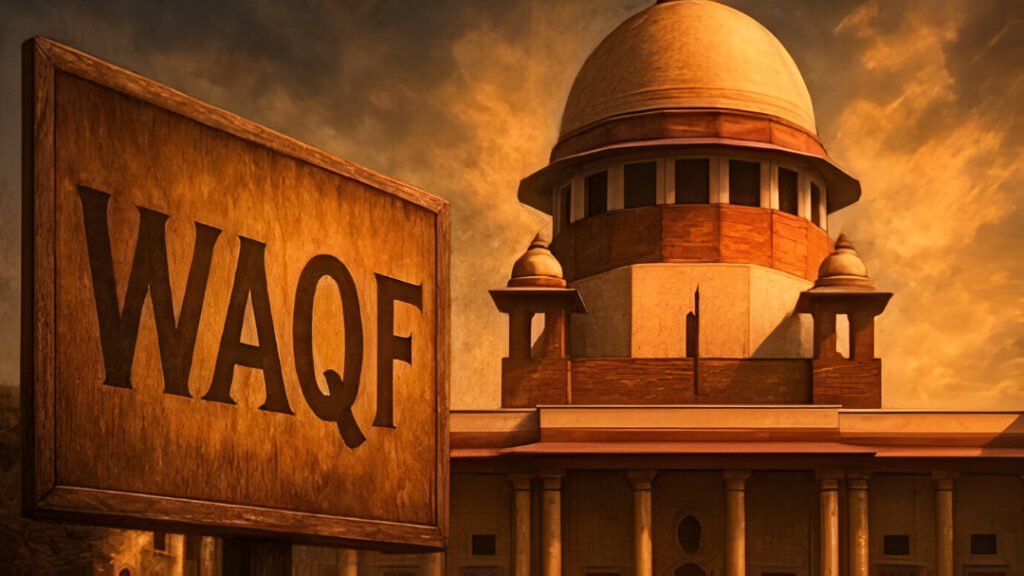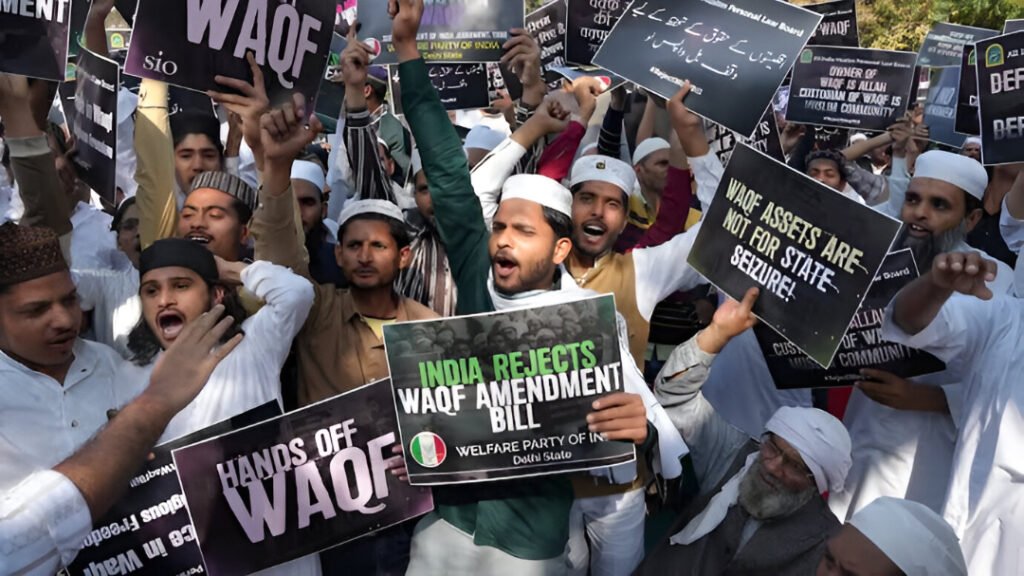India’s Supreme Court has stepped into one of the most contentious debates of the year: the future of waqf properties. On Monday, the Court refused to strike down the newly passed Waqf (Amendment) Act, 2024, in its entirety but did hit pause on some of its most debated provisions. The decision is already being seen as a halfway mark, offering relief to minority groups while allowing the government to push ahead with its reform agenda.
Why the Waqf Act Matters
For those who may not follow the issue closely, waqf properties are charitable endowments made under Islamic law, including mosques, dargahs, schools, hospitals, and even commercial buildings. India has nearly 8 lakh registered waqf properties, making it one of the largest networks of religious charitable estates in the world.
It argued that the system was plagued by corruption, encroachment, and negligent record-keeping. But for many Muslim communities, the law went too far, giving the state unprecedented powers and undermining centuries of community autonomy.

What the Supreme Court Said
The bench, headed by Chief Justice D.Y. Chandrachud, struck a careful balance. The judges made it clear that they weren’t ready to throw the law out altogether. “A blanket stay on parliamentary legislation is an extreme measure,” the Court noted, reminding everyone that laws passed by Parliament enjoy a presumption of constitutionality.
But the Court also acknowledged that there were provisions that could actively jeopardize fundamental rights, Article 25 and Article 26, which insulate freedom of religion and the right to administer religious institutions. Therefore, it suspended three key provisions:
1. Dissolution of Waqf Boards – The Act permitted the Union government to dissolve state waqf boards and appoint administrators. The Court felt this would rob the community of its right to manage its own affairs.
2. Compulsory Re-Survey – A nationwide re-survey under district collectors was also put on hold. Entrusting government officials with this task, the Court said, opened the door to bias and arbitrary decisions.
3. Government Sanction for Leases – The rule that boards must get prior approval before leasing, selling, or developing waqf properties was suspended, too. According to the judges, this could block boards from using their assets effectively for community welfare.
Other parts of the law, like digitization of records, stricter anti-encroachment measures, and mandatory audits, will continue.

The Two Sides of the Debate
The government’s case, argued by Solicitor General Tushar Mehta, was straightforward: reforms were in order. Several reports, including those from Parliament and the CAG, had pointed out corruption and mismanagement. It was intended to strengthen, not undermine, waqf institutions, he said.
On the other hand, the petitioners, including Muslim organizations and waqf boards, saw the law as an attack on religious freedom. Senior advocate Kapil Sibal argued that it amounted to “nationalizing religious property.” Others warned that compulsory re-surveys could wipe out properties from waqf records at the stroke of a bureaucrat’s pen.
Political Reactions Pour In
As expected, the ruling triggered heated political commentary.
• The All India Muslim Personal Law Board (AIMPLB) welcomed the suspension but demanded a total rollback, calling the act a bulldozed law.
• The Congress asserted the Court had upheld its position that the Act was unconstitutional.
• The BJP, on the other hand, emphasized that the law was not knocked out. They pointed out the continuation of digitization and transparency steps as a positive move. A Bigger Question About Religion and the State
This case doesn’t just affect the waqf. It raises a bigger, thornier question: What role should the state play in managing religious institutions?
In many states, Hindu temples are directly run by government departments, while waqf boards have traditionally been community-run. Some scholars say this is an uneven application of secularism and argue that the state should eventually step away from managing all religious endowments, be they temples, mutts, or waqfs. Others insist that without some oversight, corruption and mismanagement would flourish unchecked.

What’s Next?
The Supreme Court has now asked the Union government to file a detailed response within six weeks. The case will return for a final hearing in November 2025, where the constitutional validity of the entire act will be examined.
For now, waqf boards find themselves in limbo. Some had already begun preparations for re-surveys and compliance. With those provisions suspended, they’re left waiting for clarity.
What’s evident, however, is that this case has become more than one of law; it’s a trial of how India reconciles reform, religious liberty, and minority rights in the 21st century.









